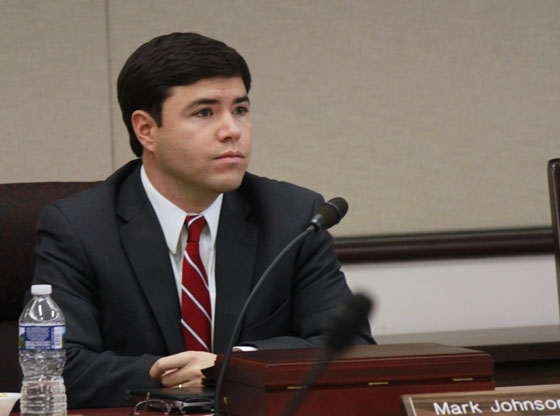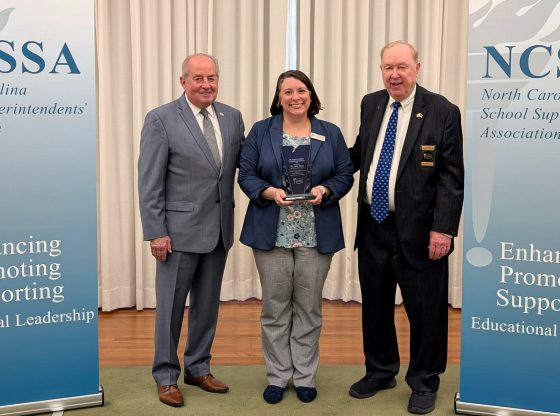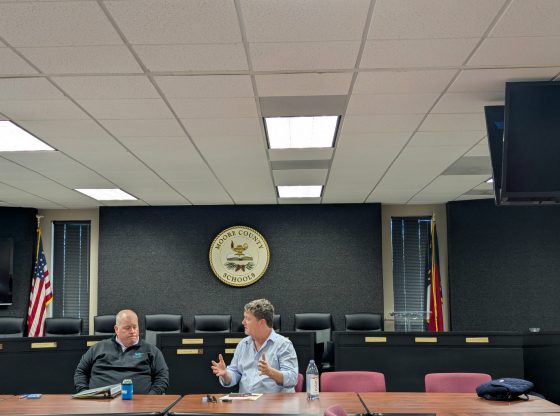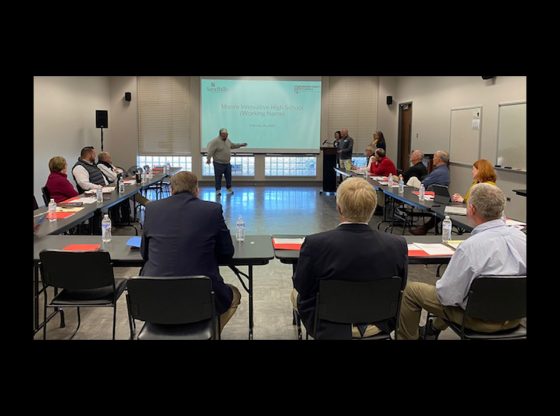RALEIGH, N.C. (AP) — North Carolina’s top court will decide whether legislators can interpret the state constitution in a way that gives control of about $10 billion a year in public school spending to an elected schools superintendent instead of the appointed state school board.
The state Supreme Court hears arguments Wednesday over whether lawmakers can diminish the authority of the appointed statewide board. The panel’s lawyers argue the state constitution clearly states the school board “shall supervise and administer the free public school system and the educational funds provided for its support.”
Republican legislative leaders and Superintendent Mark Johnson are reminding the justices the constitution also says the school board “shall make all needed rules and regulations … subject to laws enacted by the General Assembly.”
The constitution describes the superintendent only as “the secretary and chief administrative officer of the State Board of Education.”
That relationship, essentially favoring a school board made up of gubernatorial appointees over the individual chosen by voters, has been the norm since the state’s post-Civil War constitution was adopted 150 years ago. Supporters of the status quo say the school board was created to lessen the politics over assigning education tasks and money that affects 1.5 million students.
Weeks after Johnson was elected in 2016, lawmakers boosted Johnson’s role and diminished that of the state school board. The board responded that lawmakers can’t do that. They say voters would have to do it by amending the constitution.
Politicians have moved several times in recent decades to undercut or sideline the elected superintendent, but voters have never been asked to do so in any of the three dozen constitutional changes since 1971. Lawmakers considered a constitutional amendment in 2011 to give the superintendent more authority but ultimately couldn’t agree.
Unless the Supreme Court voids the law, “it would allow the General Assembly to statutorily reassign constitutional powers, setting a dangerous precedent without any limiting principle,” wrote school board attorney Robert Orr, a former state Supreme Court justice.
The lawsuit and the jockeying for power are unusual in politically divided Raleigh because Johnson, the majority of legislators, most of the school board and even Orr are all Republicans.
Lawmakers championed Johnson’s election and allocated $700,000 to let him hire staffers loyal to him because he’s “an individual who shares the General Assembly’s political priorities, and whose experience consists of a few years of teaching and service on a local school board,” the school board’s lawyers said in one court filing.
Johnson’s lawyers argue that he was the education leader directly elected by voters. They add that the General Assembly was doing its normal work of setting state policy and defining how government institutions work together.
The law’s provisions are “an effort by the General Assembly to confer more day-to-day executive authority to the Superintendent, who is on the job 365 days a year, while re-establishing the big-picture policy-setting role of the State Board, which meets for one and a half days per month,” Johnson attorney E. Hardy Lewis wrote to the court.
The case is being heard less than two weeks after the high court placed limits on the General Assembly’s ability to reshape government operations. That case ruled unconstitutional a law eroding Democratic Gov. Roy Cooper’s control of appointments to state and county elections boards. The court divided 4-3 along party lines, with all Democrats siding with Cooper.
In the upcoming education case, Chief Justice Mark Martin, a Republican, is sitting out because his wife works for the state education agency that Johnson heads.
Martin will participate in a second case Wednesday filed long before Johnson’s election. That lawsuit challenges whether a state commission that oversees agency rules can invalidate regulations that the state school board adopts.
Copyright 2018 The Associated Press. All rights reserved. This material may not be published, broadcast, rewritten or redistributed.



















